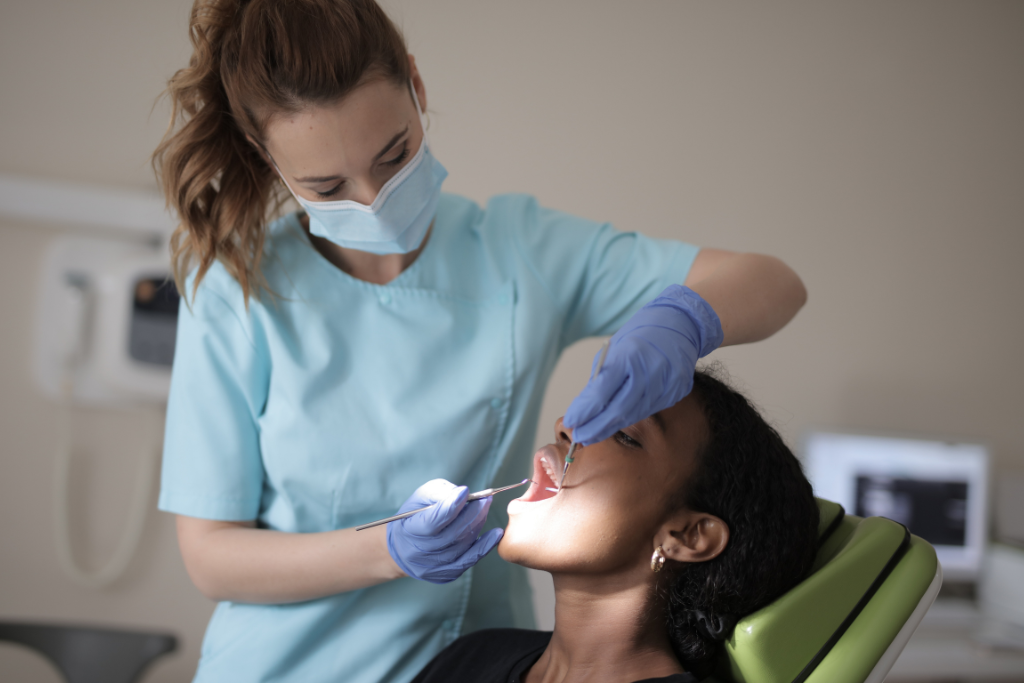Welcome to our blog! Today, we’re going to dive into the world of dental cleaning and uncover just how this simple yet essential procedure can have a profound impact on the health of your teeth and gums. Whether you love or dread your biannual trips to the dentist, there’s no denying that regular cleanings are crucial for maintaining a healthy smile. So grab your toothbrush (and maybe some floss) as we explore the importance of dental cleaning and why it should be a priority in your oral care routine. Get ready to flash those pearly whites with confidence!
The Importance of Regular Dental Cleaning
Regular dental cleaning is more than just a routine appointment; it plays a vital role in maintaining optimal oral health. You may be diligent about brushing and flossing at home, but even the most thorough hygiene practices cannot completely remove plaque and tartar buildup. That’s where dental cleanings come in.
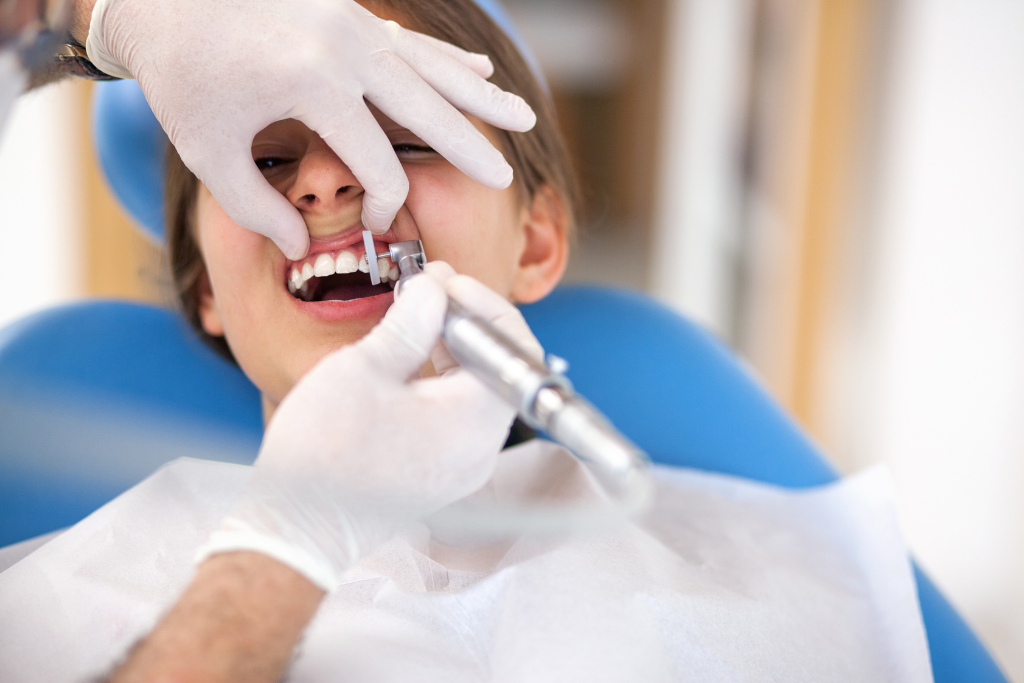
During these appointments, your dentist or dental hygienist will spot-clean your teeth, removing any plaque or tartar that has accumulated over time. This helps to prevent cavities and reduces the risk of gum disease. Without regular cleanings, plaque can harden into tartar, which cannot be removed by brushing alone.
In addition to removing stubborn plaque and tartar, dental cleanings offer an opportunity for early detection of potential oral health issues such as tooth decay or gum disease. Your dentist will carefully examine your mouth for any signs of trouble and can address them before they develop into more serious problems.
Furthermore, regular dental cleanings contribute to overall oral hygiene maintenance. By keeping your teeth free from excessive buildup and bacteria, you can enjoy fresher breath and a brighter smile. Plus, who doesn’t love that polished feeling after leaving the dentist’s chair?
So remember: don’t neglect those regular dental cleaning appointments! They are an essential part of keeping your teeth and gums healthy for years to come. Your smile will thank you!
How Dental Cleaning Can Prevent Cavities and Gum Disease
Regular dental cleaning plays a crucial role in preventing cavities and gum disease. When it comes to oral health, prevention is always better than cure. By scheduling regular dental cleanings, you can keep your teeth and gums healthy and avoid more serious issues down the line.
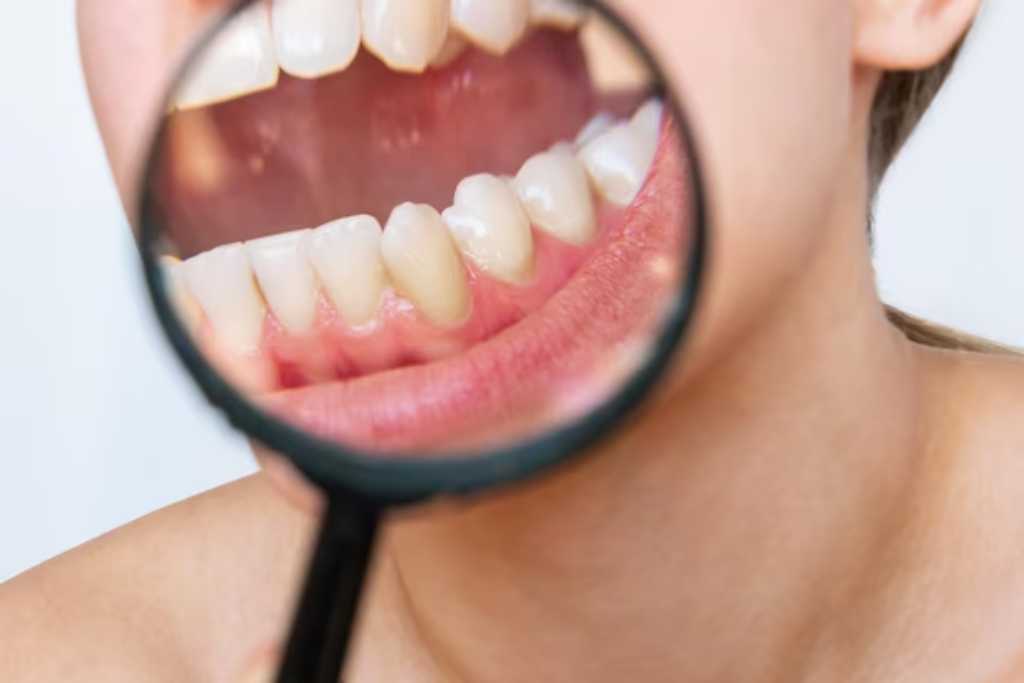
During a dental cleaning, the dentist or hygienist will carefully remove plaque and tartar from your teeth. This buildup of bacteria can lead to cavities if left untreated. The cleaning process also involves polishing your teeth to remove surface stains and make them look brighter.
Gum disease is another common issue that can be prevented through regular dental cleanings. Gingivitis, the early stage of gum disease, causes inflammation of the gums. If not treated promptly, it can progress into periodontitis, which leads to tooth loss. Dental cleanings help remove plaque along the gum line and reduce the risk of developing gum disease.
In addition to removing plaque and tartar, dental cleanings offer an opportunity for early detection of any potential problems with your oral health. Your dentist will examine your mouth for signs of decay or other issues that may require further treatment.
By committing to regular dental cleanings every six months (or as recommended by your dentist), you’re taking proactive steps toward maintaining good oral hygiene. Remember that brushing and flossing alone cannot reach all areas of the mouth effectively; professional cleaning ensures thorough removal of stubborn plaque buildup.
Don’t underestimate the impact that regular dental cleanings can have on your overall oral health! Take charge today by booking an appointment with your trusted dentist—it’s an investment worth making!
The Process of Dental Cleaning
The process of dental cleaning is a crucial step in maintaining good oral health. It involves removing plaque and tartar buildup from your teeth, which can help prevent cavities and gum disease.
When you visit your dentist for a cleaning, they will start by examining your mouth to identify any problem areas. Then, they will use specialized tools to remove the plaque and tartar that have accumulated on your teeth. This process may involve scraping or scaling the teeth, particularly along the gum line.
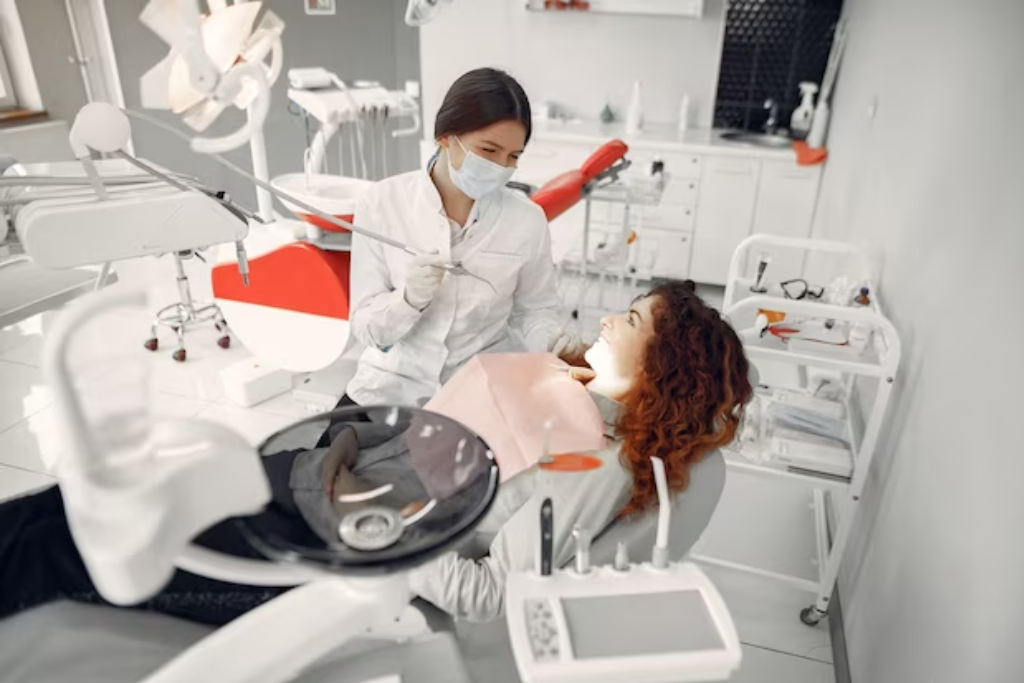
Afterward, your dentist or hygienist will spot-clean each tooth using a high-powered electric brush and gritty toothpaste. This helps polish away surface stains and leaves your teeth feeling smooth and clean.
Next comes flossing, where the dental professional will carefully maneuver between each tooth to remove any remaining debris or plaque that may have been missed during brushing.
They may apply a fluoride treatment to strengthen the enamel of your teeth and protect against future decay.
The process of dental cleaning is essential for maintaining optimal oral health. By regularly scheduling these cleanings with your dentist, you can keep cavities and gum disease at bay while enjoying a bright smile!
Common Misconceptions About Dental Cleaning
Several common misconceptions about dental cleaning can lead to misunderstandings and neglect of proper oral care. One misconception is that brushing and flossing alone is enough to maintain a healthy mouth, rendering professional cleanings unnecessary. While daily brushing and flossing are essential for maintaining good oral hygiene, they cannot take the place of a dentist’s or dental hygienist’s thorough cleaning.
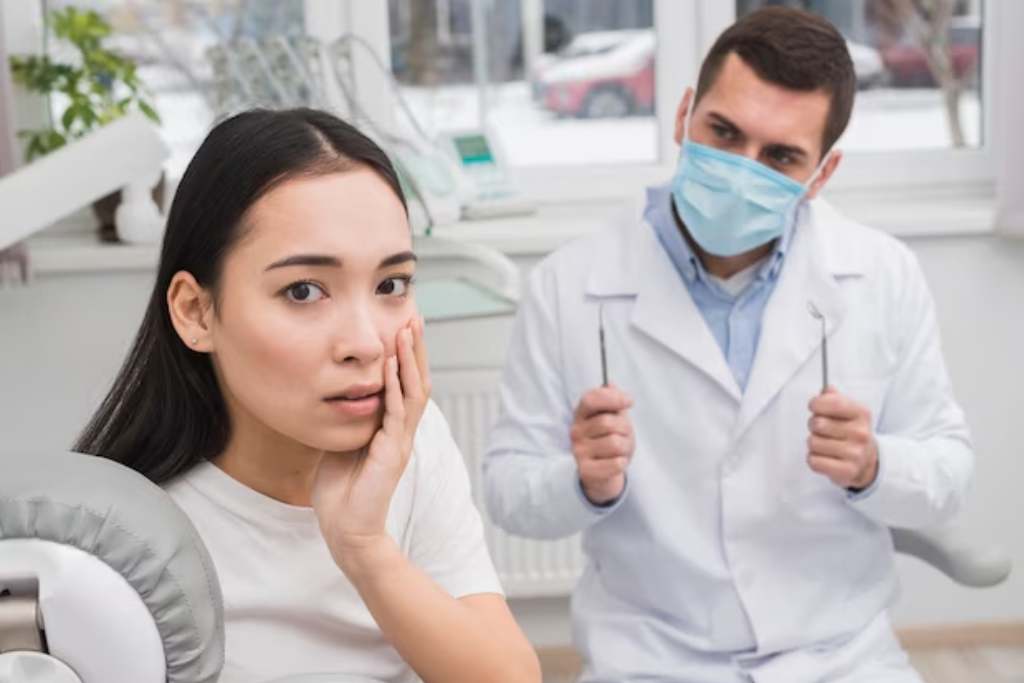
Another misconception is that dental cleanings are painful or uncomfortable. The truth is, with modern advancements in dentistry, dental cleanings have become much more comfortable than they used to be. Dentists use gentle techniques and numbing agents to ensure patients’ comfort during the procedure.
Some people believe that if their teeth look fine and they don’t experience any pain or discomfort, there’s no need for regular dental cleanings. However, many oral health issues can go unnoticed without a professional examination. Regular cleanings allow dentists to detect early signs of cavities, gum disease, or other potential problems before they develop into more serious conditions.
It’s also important to address the misconception that only those who have visible plaque buildup or bad breath need professional cleanings. Even if your teeth appear clean and you have fresh breath, plaque can still accumulate in hard-to-reach areas, such as between teeth or along the gum line. Professional cleanings help remove this hidden plaque buildup and prevent future issues.
Some individuals believe that skipping regular dental cleanings will save them money eventually. However, neglecting routine preventive care can lead to more extensive—and expensive—dental treatments down the road. By investing in regular dental cleaning appointments now, you can potentially avoid costly procedures like fillings or root canals later on.
Tips for Maintaining Good Oral Hygiene Between Cleanings
Maintaining good oral hygiene is crucial for keeping your teeth and gums healthy between dental cleanings. While regular dental cleanings play a vital role in preventing cavities and gum disease, there are several steps you can take at home to complement the professional cleaning process.

Brushing your teeth twice a day is essential. Use a soft-bristled toothbrush and fluoride toothpaste to gently remove plaque and bacteria from all surfaces of your teeth. Don’t forget to brush along the gum line as well, as this area is prone to bacterial buildup.
In addition to brushing, daily flossing is equally important. Flossing helps remove food particles and plaque from areas that your toothbrush cannot reach, such as between the teeth and under the gum line. Make sure to use the proper flossing technique by gently sliding the floss up and down each side of every tooth.
Using mouthwash can also be beneficial for maintaining good oral hygiene. Choose an antibacterial mouthwash that kills germs and freshens your breath. Rinse with mouthwash after brushing or whenever you want an extra burst of freshness throughout the day.
Furthermore, paying attention to your diet can have a significant impact on your oral health. Limit sugary snacks and drinks, as they contribute to tooth decay. Instead, opt for healthier choices like fruits, vegetables, dairy products, and water.
Don’t neglect regular visits to your dentist for check-ups in addition to cleanings. Your dentist will assess your overall oral health during these visits, while also providing guidance specific to your needs.
By implementing these tips into your daily routine alongside regular dental cleanings, you’ll ensure optimal oral health all year round!
Potential Risks of Not Getting Regular Dental Cleanings
Neglecting your dental health can have serious consequences. Without regular dental cleanings, you are putting your teeth and gums at risk for various problems.
One of the main risks is an increased chance of developing cavities. Over time, plaque and tartar can build up on your teeth, leading to decay. Without professional cleaning, these harmful substances won’t be effectively removed from your mouth, making it easier for cavities to form.

Another potential risk is gum disease. Tartar buildup along the gum line can cause inflammation and irritation, eventually leading to gingivitis and periodontal disease if left untreated. These conditions can result in swollen gums, bad breath, tooth loss, and even systemic health issues like heart disease.
Additionally, not getting regular dental cleanings may also contribute to oral infections such as abscesses or oral thrush. These infections can be painful and require more extensive treatment if ignored for too long.
Moreover, cancer detection becomes difficult without routine cleanings, as dentists perform oral cancer screenings during these visits, which helps in early detection and successful treatment.
Overall, bypassing regular dental cleanings puts you at risk for various oral health issues that could potentially worsen over time if left unaddressed.
Consider exploring “The Incredible Health Benefits of Cardamom” for a holistic approach to wellness. This aromatic spice, known for its distinct flavor, also boasts several health advantages that could contribute to both oral and overall wellbeing. Incorporating insights such as these into your lifestyle could contribute to improved oral and overall health outcomes.

